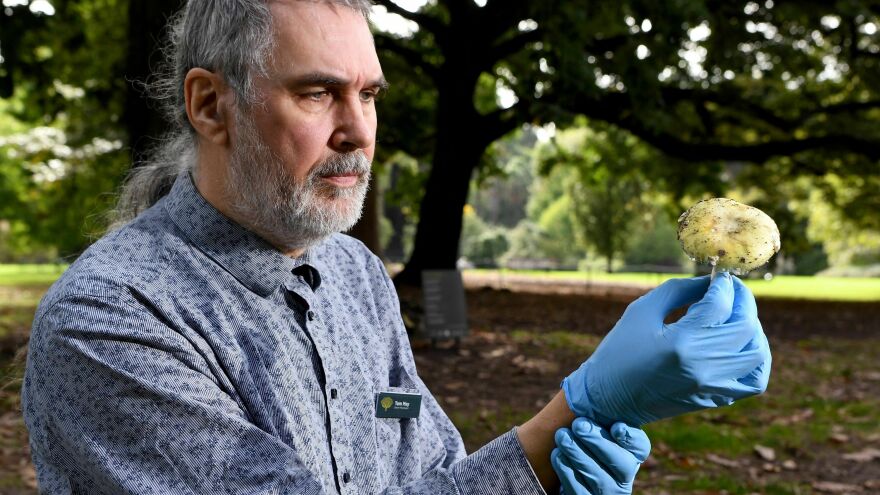It's the kind of story a mystery novelist might conjure. But for months, a real murder case has been playing out in a small Australian town where three people died after eating a family meal that was suspected to contain poisonous death cap mushrooms.
The prime suspect in Leongatha, a country town some 84 miles southeast of Melbourne in Victoria, has long been seen as Erin Patterson, who hosted the lunch in late July whose four guests quickly fell gravely ill. The menu included a beef Wellington dish that Patterson said included mushrooms.
Police arrested Patterson on Thursday; she is now charged with three counts of murder and five counts of attempted murder. The authorities did not name Patterson directly, but the details and circumstances align closely with her case, and national media quickly reported her arrest.
Patterson has maintained that she did nothing wrong, in the face of intense media scrutiny and public speculation.
"I am now devastated to think that these mushrooms may have contributed to the illness suffered by my loved ones," she said in August, in a statement to police obtained by Australian broadcaster ABC. "I really want to repeat that I had absolutely no reason to hurt these people whom I loved."
The cook's relatives were apparently poisoned
Three people died in the days after the July 29 lunch at Patterson's home. From early on, police said the stricken people showed symptoms consistent with consumption of death cap mushrooms, which are known to grow in Victoria.
The victims in the case are:
Police did not identify the 48-year-old man listed as a fifth victim, but he is widely believed to be Simon Patterson, Erin's estranged husband. He had reportedly been invited to that fateful lunch, but he canceled.
The time frame police provided for the three earlier incidents matches social media postings attributed to Simon Patterson, including one in which he described being in an induced coma for more than two weeks and having emergency surgery as he battled life-threatening stomach and intestinal issues.
The case ignited public curiosity

The deaths in the case were not quick: The victims spent roughly a week in the hospital before dying. It wasn't until Sept. 23 the survivor, Ian Wilkinson, was well enough to leave the hospital.
Patterson's arrest followed "an incredibly complex, methodical and thorough investigation," Detective Inspector Dean Thomas of the Victoria Police Homicide Squad said on Thursday.
Patterson reportedly told police that she also ate the beef Wellington and that she also became ill.
The suspicious circumstances sparked "incredibly intense levels of public scrutiny and curiosity," Thomas said — but he also urged the public to keep in mind that the case centers on the loss of "three people who by all accounts were much beloved in their communities and are greatly missed by their loved ones."
The detective inspector also thanked "members of the public who have reached out and provided information in relation to this incident."
Death cap mushrooms cause painful symptoms
"About 9 out of 10 fungi-related deaths are attributable to the Death Cap mushroom," according to the Victorian government, which says symptoms normally begin six to 24 hours after the mushroom is eaten.
In her statement to police, Patterson reportedly told investigators that she prepared her beef Wellington using a mix of mushrooms from a supermarket and dried mushrooms she got from an Asian grocery. The dish features a beef tenderloin baked in puff pastry.
Months before Patterson had her relatives over for lunch, the Victoria Department of Health issued an advisory warning that death cap mushrooms were growing in the state.
Death cap mushrooms, or Amanita phalloides, commonly grow under oak trees and "are extremely poisonous," even after drying or cooking, the health agency said. "Consuming just one mushroom can kill an adult."
Symptoms can include "violent stomach pains, nausea, vomiting and diarrhoea," it said, adding that the mushroom's toxins can leave a survivor's liver seriously damaged.
Copyright 2023 NPR. To see more, visit https://www.npr.org. 9(MDM3NjYwMjA5MDE1MjA1MzQ1NDk1N2ZmZQ004))


